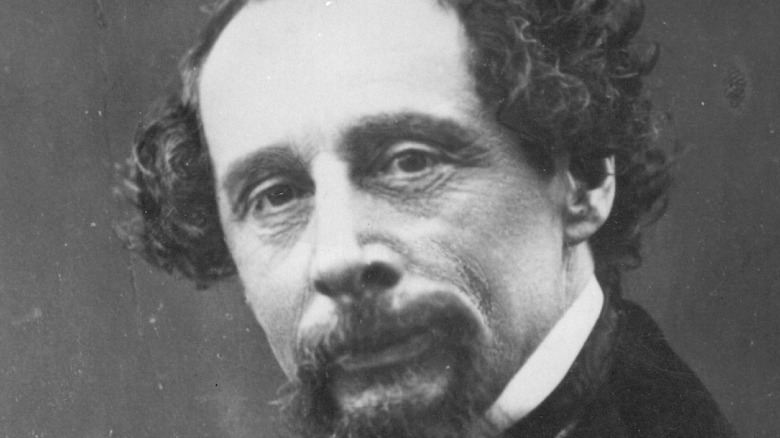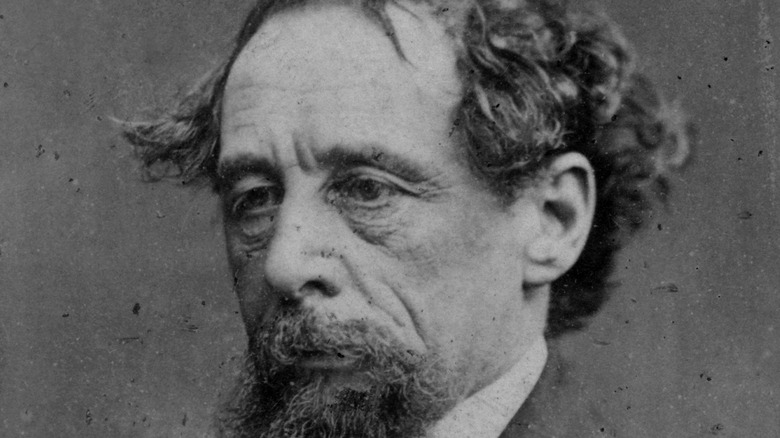The Tragic Death Of Charles Dickens
Charles Dickens may be considered England's greatest novelist of the Victorian era for his stories, which include "A Christmas Carol," "A Tale of Two Cities," and "Oliver Twist." But his literary brilliance was born out of a life of tragedy and pain that many believe drove him to an early death at just 58 years old.
Dickens, who was born in 1812, experienced extreme poverty and the death of two of his younger siblings before he was even a teenager. His father's poor financial decisions and woes landed him in a debtors' prison, which, per Biography, forced young Charles and his sister to leave school to work at a run-down, rat-infested shoe polish factory for 10 hours a day or more for poor wages at the age of 12. He later wrote, per The Guardian, that "no words can express the secret agony of my soul" from working at the factory, which left him "penetrated with grief and humiliation."
Throughout his work, Dickens fixated on the themes of poverty, debt, grief, and rough upbringings — all based on his own experiences as a child. For the rest of his life, he would work incessantly to avoid the mistakes his father made, both for his own well-being and, later, so that his 10 children would never have to experience the horrors he did. His workaholic ways led to editing a weekly journal for 20 years, writing 15 novels, penning five novellas, and publishing hundreds of short stories and journalistic articles.
Dickens worked himself to death
If all the writing and publishing wasn't enough, Dickens also kept up an incredible schedule on the speaking circuit, reciting his work and lecturing on social reforms that focused on children's rights and education. In the spring of 1869, as his health was becoming an impediment to travel, Dickens set out on his "farewell readings" tour of England, Scotland, and Ireland. During it, he suffered a mild stroke and was forced to return home. Although his health had improved significantly, he ignored his doctor's wishes and scheduled 12 performances of "A Christmas Carol" as well as a trial scene from "The Pickwick Papers" at St. James' Hall in London beginning in January 1870. Appearing frail, per the British Library, Dickens made it through the 12 events and moved full steam ahead on his unfinished novel, "The Mystery of Edwin Drood." However, on June 8, 1870, Dickens suffered another stroke and died the following day.
According to John Forster, Dickens' friend and executor, the author's wish was to be buried at Rochester Cathedral "in an inexpensive, unostentatious, and strictly private manner," with "no public announcement be made of the time or place of my burial," per Robert Garnett's book, Charles Dickens in Love. Instead, he was buried in the Poets' Corner of Westminster Abbey along with Geoffrey Chaucer and William Camden. "He was a sympathizer with the poor, the suffering, and the oppressed; and by his death, one of England's greatest writers is lost to the world," a printed epitaph read, per Historic UK.

